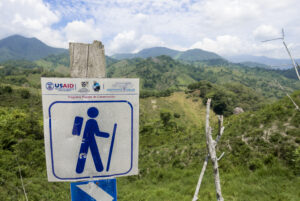In an interview in the Colombian magazine Semana, Senator Reid explained the reasons why the Democratic-controlled Congress has opposed a vote on the Colombian free trade agreement.
The Nevada Democrat, who recently visited Colombia, pointed out in the interview that Colombia continues to have the highest rates of killings of labor leaders in the world.
The following is a translation of the interview that appeared in the December 1, 2007 issue of Semana.
The original interview can be read in Spanish at:
http://www.semana.com/wf_InfoArticulo.aspx?idArt=108048
"We have not been good neighbors"
The United States' Senate Majority Leader, Harry Reid, does not consider it serious if Colombia ends up without a Free Trade Agreement. He worries about crimes against union leaders.
Senator Harry Reid is not just any congressman. As the Senate Majority Leader he is, next to the Speaker of the House of Representatives, Nancy Pelosi, the person who dictates Congress' agenda and is George W. Bush's first detractor. When President Álvaro Uribe met with him in Washington last May, Senator Reid laid his cards on the table regarding para-politics and crimes against union workers. He was in Colombia on Wednesday for an eight hour visit. SEMANA interviewed him:
SEMANA: Have your worries about union workers been resolved at all?
HARRY REID: President Uribe was clear regarding his interest in the FTA with the United States. However, many members of Congress are still convinced that before the United States signs an FTA with Colombia, more progress is required in order to face the violence against union workers. In spite of the progress in this area, Colombia still has the highest levels of murders of union leaders in the world. President Uribe is a very capable leader and a friend of the United States. Our visit suggests that if the Uribe administration continues to show the will and invests the resources, it is capable of eventually reaching the necessary advances.
SEMANA: And para-politics?
H.R.: Many members of Congress are worried as well about the para-politics scandal. In many ways, the existence of the scandal shows the rise of stability in recent years. However, it is understandable that members of Congress are worried about the convictions up until today and the continual accusations and want to be reassured that there will be a complete and comprehensive investigation.
SEMANA: How do you explain the fact that your Congress approves the FTA with Peru and delays Colombia's?
H.R.: Colombia and Peru's situations are very different. Peru does not have the same history of violence and intimidation against workers as Colombia, or the decades of impunity. An FTA is the highest level of economic integration in American economic public policy and it is essentially permanent. When we consider whether or not to sign an FTA and under which circumstances, we have to take into consideration the differences amongst countries.
SEMANA: Don't you think that by not approving the FTA, the United States is closing the doors to its main ally?
H.R.: The relationship between the United States and Colombia has strong foundations, built upon common values and interests. The FTA is only one small facet of this relationship. The United States' decision regarding the FTA will not alter the common values and interests that exist. The United States will continue to support Plan Colombia and there will be cooperation with Colombia and the Andean region. It is hard to believe that, in spite of the United States' decision regarding the FTA, Colombia's government will not continue to have common interests with the United States regarding the promotion of democracy and stability, poverty reduction, the fight against narcotics, and the promotion of development.
SEMANA: Is Plan Colombia successful?
H.R.: I support Plan Colombia's goals. We want to make sure that the United States government's resources are employed in the most efficient way possible and help address the root problems of poverty and instability in the country. Also, we want to be sure that the deactivated paramilitary members are not freed of responsibility and that those who receive immunity for crimes of the past do not have the opportunity to commit new crimes.
SEMANA: Is Venezuelan President Hugo Chávez a threat to the United States?
H.R.: Many government officials that we have met in the countries we have visited until now have expressed that the United States should not focus so much on what President Chávez does; what matters are the United States' actions in the region. We have not been good neighbors and we have to do more in order to strengthen the ties with our friends in the hemisphere.

